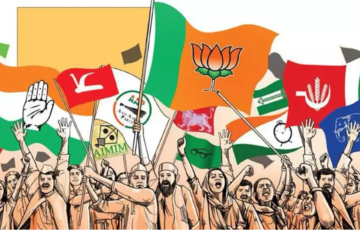Balancing Religious Sentiments & Constitutional Mandates in India
In the context of India’s pluralistic society, how can political and legal mechanisms be optimized to balance religious sentiments and constitutional mandates? Suggest policy measures to prevent divisive litigation while ensuring justice. (250 words)
Introduction
India’s pluralistic democracy thrives on religious and cultural diversity. However, balancing religious sentiments with constitutional mandates remains a challenge, especially when legal disputes arise over places of worship. Effective political and legal mechanisms can help maintain harmony while upholding the rule of law.
Challenges in Balancing Religious Sentiments and Law
1. Conflict Between Faith and Legal Framework: The judiciary must interpret laws objectively while being sensitive to religious beliefs.
2. Politicization of Religious Issues: Political parties often use religious sentiments for electoral gains, leading to unnecessary litigation.
3. Public Order Concerns: Religious disputes, if not handled carefully, can escalate into social unrest.
Policy Measures to Prevent Divisive Litigation
1. Strengthening the Places of Worship Act: Amendments can clarify ambiguities and reinforce the law’s finality.
2. Encouraging Mediation and Arbitration: Community-led conflict resolution mechanisms can reduce legal battles.
3. Stringent Regulations on Politicization: Electoral reforms must curb the use of religious issues for political gains.
4. Public Awareness and Education: Promoting constitutional values and religious tolerance can prevent unnecessary disputes.
5. Fast-Track Religious Dispute Resolution Courts: Special courts can handle religious disputes efficiently without overburdening the judiciary.
Conclusion
India’s democratic and secular fabric depends on balancing religious sentiments with legal mandates. By prioritizing reconciliation over litigation, the country can ensure peace and progress in line with the vision of ‘Viksit Bharat.’





